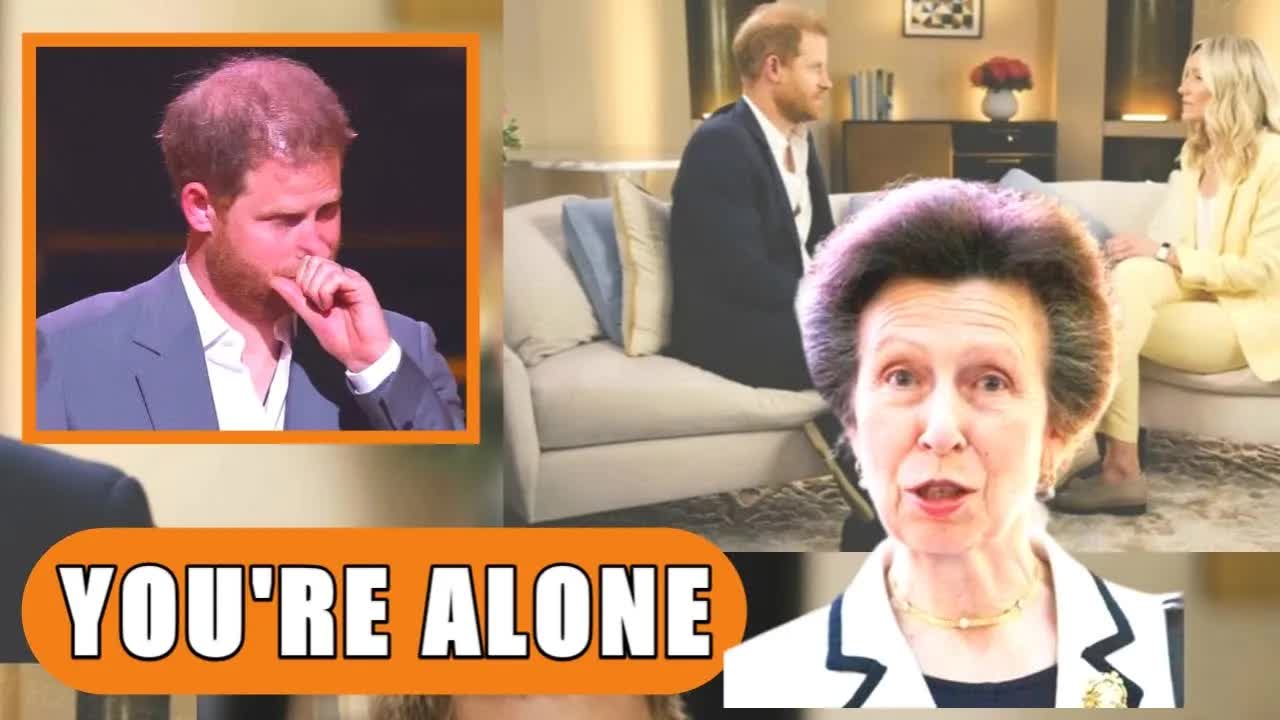In a recent documentary, Prince Harry made waves by attributing his strained relationship with the royal family to his ongoing battle with the British press.
Speaking candidly to ITV’s Rebecca Barry, he claimed that his mission against tabloids has significantly impacted his ties to his family.
But is this really the whole story?
Harry’s comments have sparked debate, especially given his tendency to portray himself as a martyr in this ongoing saga.
He described a “torrent of abuse” from the media whenever he discusses family matters, suggesting that his struggles are compounded by relentless scrutiny.
This narrative raises eyebrows, particularly when considering the prince’s privileged lifestyle in California, which seems to have fueled his sense of victimhood rather than alleviating it.
Critics argue that Harry’s portrayal of his family dynamics overlooks some significant facts.
His memoir, “Spare,” contained harsh criticisms of family members, labeling his stepmother as “dangerous” and his sister-in-law as having “imperious demands.”
Such characterizations paint a troubling picture of their relationships, suggesting that Harry’s grievances run deeper than just media interference.
It’s worth noting that it was Prince William who first alerted authorities to his concerns about illegal phone hacking within the press.
This detail complicates Harry’s narrative, indicating that there were already tensions within the family long before his public crusade against tabloid journalism began.
Moreover, Harry’s accusations of racism against the royal family—specifically regarding concerns over baby Archie‘s skin color—have left a lasting stain on the monarchy.
He vowed never to disclose the identities of those involved, only for it to later emerge that it was indeed family members, Charles and Kate, who had been implicated.
This revelation raises questions about Harry’s accountability in the matter.
The irony isn’t lost on many as Harry and Meghan continue to publicly criticize Thomas Markle for his interactions with the press, despite their own extensive media engagements.
Their actions seem to contradict their condemnation of their estranged father, leading to accusations of hypocrisy.
The rift between Harry and the royal family seems to be rooted in various issues that predate his media campaign.
To attribute the fallout solely to his press conflict feels misleading and offers him a convenient excuse to deflect from deeper familial issues.
While Harry may feel justified in his stance, it’s unlikely that King Charles, Prince William, or even Kate Middleton would agree with his assessment.
Their perspectives on the rift likely differ greatly from his, suggesting a more complex web of grievances and misunderstandings.
Living in his luxurious Californian home, Harry has created a bubble where his views reign supreme.
Surrounded by celebrity friends and the trappings of fame, he seems insulated from any dissenting opinions, further solidifying his narrative without challenge.
The Sussexes now exist in a realm that blends celebrity culture with activism, often measuring their worth through awards and accolades.
Recently, Harry accepted the Pat Tillman Award for service, despite objections from military families.
This decision highlights his desire for recognition, even at the risk of controversy.
Harry’s life today appears to be sustained by accolades and initiatives, some of which, like the Invictus Games, are undoubtedly commendable.
However, his insistence that the press is the root cause of his family’s distance feels increasingly implausible, leaving many to wonder if he’s merely fooling himself in this elaborate blame game.
Related Stories

